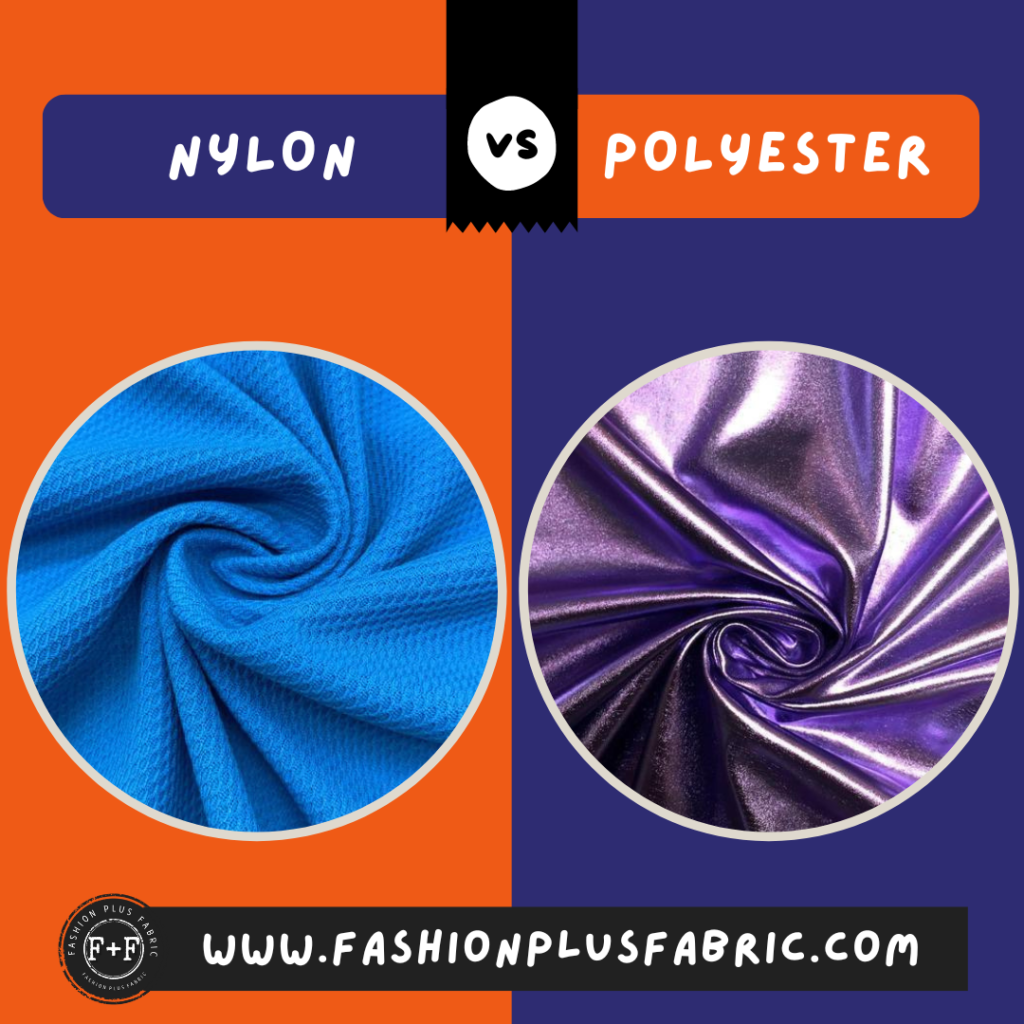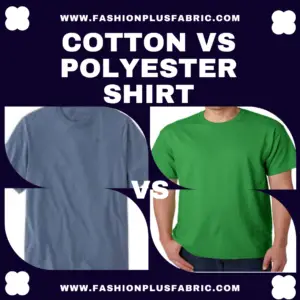Is nylon a polyester? I’m sure it is quite clear that nylon and polyester are not the same. Although they are both synthetic fibers, that does not mean nylon is polyester.

This guide will help clear your mind and misconceptions about whether polyester is nylon or not, which also goes the same with whether nylon is polyester or not.
Nylon and Polyester (Nylon vs Polyester)
As mentioned above, nylon and polyester are both synthetic fibers, but they sure have their differences and distinguishable features, some of which will be discussed and explained in this guide on “Is Polyester Nylon?”
One of the major and obvious differences between polyester and nylon is that the production of nylon is quite costly compared to that of polyester, which in turn will affect the price at which it is being sold to the consumer, making it higher.
Also, in comparison, nylon is very likely to be more long-lasting and resistant to weather compared to polyester.
This is also one of the reasons why nylon is preferred for outdoor apparel or gear over polyester.
Not talking too much about nylon, polyester is more resistant to heat compared to nylon, although nylon is stronger when it comes to flame retardant. However, both of them are flame retardants.
Polyester’s Benefits and Drawbacks
Below will be some advantages and disadvantages of this fabric. This will help you learn about polyester.
Polyester is not extremely breathable, although it is extremely long-lasting and weather-resistant, which means it can handle most weather conditions without being damaged.
Polyester also has an extreme ability to resist water, and you should rest assured that it does not absorb water.
Furthermore, it has an extreme ability to resist mold, UV, and flame. However, polyester does not have the ability to resist odor. It holds smells, making this feature fall under one of its disadvantages.
You wouldn’t have any issues or problems cleaning your polyester and also washing it. Its cost price is also extremely affordable thanks to its economical methods of production.
And lastly, as for the advantages of polyester, they are all-round and extremely versatile as they can be used for numerous types of clothing.
Nylon: Advantages and Disadvantages
So let’s get to talking about some of the advantages and disadvantages of nylon. Since you have gotten that of polyester, I’m sure it’s right to also give you that of nylon.
Well, nylon and polyester have some common properties, one of which, as you know, is that they are both not extremely breathable. This has been given above for polyester.
Nylon is also extremely long-lasting, which is the same as polyester. And, it is highly malleable.
Nylon can absorb water, but it also has the ability to withstand water. In addition, it possesses the ability to withstand mold and flame.
Furthermore, it does not have the same UV resistance as polyester. However, it can withstand odors much more than polyester.
As with polyester, it is also not difficult to wash in a machine, clean, and care for. It is also affordable, but it is more expensive compared to polyester.
It is also not as versatile as polyester. The kinds of clothing they can use nylon for are somewhat limited. It can be used for clothing like outdoor apparel and underwear.
Nylon vs Polyester: Fabric
In comparison, nylon is extremely strong, and it would be right to say that nylon is stronger compared to polyester.
Both polyester and nylon can withstand abrasion and can also withstand the damage some chemicals can cause.
Nylon can withstand oil. And both nylon and polyester are flammable. Nylon melts and subsequently burns quickly.
However, polyester possesses a greater flammability temperature. Even so, it melts and burns simultaneously.
Polyester and nylon also have the ability to withstand wrinkles, although polyester is more resistant to wrinkles.
Polyester does not stretch or shrink and it remains a crunchy, strong fabric, both in its wet and dry state.
Both polyester and nylon possess an approximately low ability to absorb moisture. However, in comparison, the ability of nylon to absorb moisture is lower than that of polyester.
Nylon vs Polyester: Uses
You shouldn’t worry too much about this as both polyester and nylon are used in numerous kinds of clothing.
This ranges from apparel to consumer electronics home furnishings, and so on. We can’t get to mention them all here.
Nylon vs Polyester: Apparel
As mentioned above, polyester is quite versatile and it is used more extensively in apparel as you can find it in more or less every kind of clothing.
Normally, nylon is only used for the following: dresses, blouses, hosiery, lingerie, tights, foundation garments, raincoats, underwear, windbreakers, swimwear, ski apparel, and cycle wear.
How Are Polyester and Nylon Fibers Made?
We’ve talked about so many important details about polyester and nylon, and by now, you are quite convinced that nylon is not polyester, nor is polyester nylon.
However, let’s quickly talk about how polyester and nylon are made. This should help wrap this guide up.
Nylon, which is also commonly referred to as polyamide in Europe, was first manufactured in 1935 and started gaining worldwide fame in the form of nylon stockings.
Both polyester and nylon fibers are gotten from petroleum, and they are plastic compounds. They were both constructed to be quite resilient, very light, and extremely long-lasting compared to natural fabrics.
Polyester and nylon are both used to replace these natural fabrics. However, the question of how polyester and nylon fibers are made hasn’t been answered.
Well, the production processes of both polyester and nylon are quite similar. Small plastic pellets are gotten by the manufacturers, which are more or less the same color and size as a grain of rice.
Then, they proceed to melt them and get the molten solution, passing it through a spinneret, which is a type of wheel that has many tiny holes in it.
They then make and produce different lengths and thicknesses of plastic strands, which can then be used to make garments and mixed to create thicker threads.
Final Thoughts – Is Nylon a Polyester?
Both polyester and nylon are popular fabrics, and the detailed information about each of them given in this guide will give you a better understanding of them.
So, you can now get the one that is suitable for your needs and wants as you also know their advantages and disadvantages, which have also been given here.
And, to go briefly, you should remember that polyester is inexpensive compared to nylon and it can also withstand water much more than nylon.
However, nylon is softer, but its usage is limited compared to polyester. So, this will be a wrap-up of this guide on “Is Nylon a Polyester? (Is Polyester Nylon?” as you now have your answer and clarification on the question asked.


